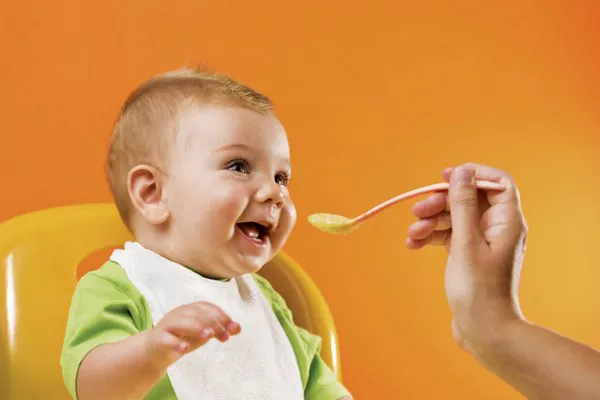Breastfeeding mothers often have questions about their diet and how it might affect their baby. One such query is whether it’s safe to eat honey while breastfeeding. Honey is a natural sweetener with several health benefits, but it’s crucial to consider the potential risks associated with honey consumption for both you and your baby during this delicate stage of life. In this guide, we’ll explore whether eating honey while breastfeeding is safe and what precautions you should take.
Is Honey Safe for Breastfeeding Mothers?
1. Botulism Risk:
Honey can sometimes contain spores of a bacterium called Clostridium botulinum. These spores can produce toxins in a baby’s immature digestive system, leading to a rare but serious illness called infant botulism.
2. Immature Digestive System:
Newborns and young infants have less mature digestive systems and weaker immune systems, making them more susceptible to the potential risks associated with honey.
Precautions for Breastfeeding Mothers Regarding Honey
1. Avoid Honey for Infants:
It is strongly recommended to avoid giving honey to infants under the age of one. This includes not adding honey to pacifiers, teething rings, or any food or drink for your baby.
2. Limit Honey Consumption:
While there is no conclusive evidence that eating honey while breastfeeding is harmful, it’s advisable to limit your honey consumption during this time to minimize any potential risk to your baby.
3. Choose Pasteurized Honey:
If you choose to consume honey while breastfeeding, opt for pasteurized honey, which has undergone a heating process that kills any potential botulism spores.
4. Monitor Your Baby:
After consuming honey or any new food, monitor your baby for any unusual symptoms or reactions. If you notice signs of illness or discomfort, consult with your healthcare provider.
Balanced Nutrition While Breastfeeding
1. Focus on Nutrient-Rich Foods:
Emphasize a balanced diet with a variety of nutrient-rich foods to support your health and milk production while breastfeeding.
2. Stay Hydrated:
Drink plenty of water to maintain hydration, as breastfeeding can increase your fluid needs.
3. Consult with a Healthcare Provider:
If you have specific dietary concerns or restrictions, consult with your healthcare provider or a registered dietitian for personalized guidance on your breastfeeding diet.
Conclusion
While the consumption of honey while breastfeeding is generally considered safe for the mother, it’s important to exercise caution. The risk of infant botulism associated with honey makes it advisable to avoid giving honey to infants under the age of one and to limit your honey consumption while breastfeeding.
Remember that maintaining a balanced and nutritious diet is essential for both your health and the quality of your breast milk. If you have any concerns or questions about your breastfeeding diet, it’s always a good idea to consult with a healthcare provider or a registered dietitian for guidance tailored to your specific needs.
FAQs about eating honey while breastfeeding
Q1: Is it safe for breastfeeding mothers to eat honey?
A1: While eating honey while breastfeeding is generally considered safe for the mother, it is not recommended to give honey to infants under the age of one due to the risk of infant botulism.
Q2: What is infant botulism, and why is honey a concern for babies under one year old?
A2: Infant botulism is a rare but serious illness that can affect babies under one year old. Honey can sometimes contain spores of a bacterium called Clostridium botulinum. If ingested, these spores can multiply in an infant’s immature digestive system and produce toxins, leading to botulism.
Q3: Can I consume pasteurized honey while breastfeeding?
A3: Consuming pasteurized honey while breastfeeding is considered safer than raw honey because the pasteurization process involves heating that can kill any potential botulism spores. However, it’s still advisable to limit honey consumption during this time and monitor your baby for any adverse reactions.
Q4: Are there any signs or symptoms to watch for in my baby if I’ve consumed honey while breastfeeding?
A4: After consuming honey or any new food, it’s a good practice to monitor your baby for unusual symptoms or reactions. Signs of infant botulism can include weakness, poor feeding, constipation, and difficulty breathing. If you notice any concerning symptoms, contact your healthcare provider.
Q5: Can I cook or bake with honey while breastfeeding?
A5: Cooking or baking with honey is generally safe because the heat involved in these processes can destroy any potential botulism spores. However, be cautious when adding honey to foods that your baby may consume directly.
Q6: Are there any alternatives to honey for sweetening foods and drinks while breastfeeding?
A6: Yes, there are several alternatives to honey for sweetening foods and drinks while breastfeeding. These include maple syrup, agave nectar, and various fruit purees. These alternatives can be used safely in moderation.
Q7: Is there a recommended limit for honey consumption while breastfeeding?
A7: While there is no specific recommended limit for honey consumption while breastfeeding, it’s advisable to consume it in moderation and to be cautious when adding honey to foods that your baby may come into contact with.
Q8: Can I consume honey after my baby’s first birthday?
A8: Yes, once your baby reaches their first birthday, their digestive system is more mature, and the risk of infant botulism associated with honey significantly decreases. After the age of one, it is generally safe for both you and your child to consume honey.
Q9: How can I ensure a balanced and nutritious diet while breastfeeding?
A9: To ensure a balanced and nutritious diet while breastfeeding, focus on a variety of nutrient-rich foods, including fruits, vegetables, lean proteins, whole grains, and dairy or dairy alternatives. Staying hydrated by drinking plenty of water is also essential.
Q10: Should I consult with a healthcare provider or dietitian about my diet while breastfeeding?
A10: If you have specific dietary concerns, restrictions, or questions about your diet while breastfeeding, it’s a good idea to consult with a healthcare provider or a registered dietitian. They can provide personalized guidance tailored to your needs and those of your baby.


